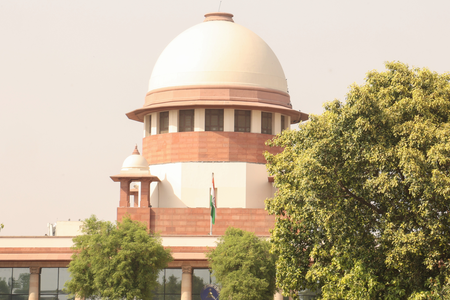The Supreme Court of India turned down a public‑interest lawsuit that accused the Election Commission of serious flaws in the country’s voter lists. On Monday, Justices Surya Kant and Joymalya Bagchi told the petitioners that any concerns about the rolls must first be taken to the Election Commission.
The lawsuit, filed by lawyer Kausar Raza Faridi, claimed that the same people were registered in multiple constituencies, violating the “one person, one vote” principle. The petition highlighted cases such as a voter registered in Mahadevapura (Bengaluru), Lucknow East, and Jogeshwari East (Maharashtra). Another example mentioned a voter listed in Mahadevapura and Varanasi Cantonment at the same time. The lawyers said that the unique EPIC number should keep each voter on a single ballot, yet the court found duplicate entries that allowed a voter to cast ballots in four different areas—“that is a direct violation of the law and the Constitution.”
The plaintiffs also brought up serious irregularities in Maharashtra after the 2024 Lok Sabha elections. They said that in roughly four months, 3.9 million new names appeared on the electoral roll, whereas in the five years before that only about 5 million were added. The complaint said the sudden surge raised doubts about the Election Commission’s transparency, suggesting that many of those names may be fake or duplicated.
In Karnataka, an Election Officer in Kalaburagi filed an FIR after noticing suspicious additions and deletions on the voter list. The petitioners said the CID reached out to the Election Commission about 20 times, but never received a response or any cooperation. Similar problems were reported in Chandrapur Constituency No. 71 in Maharashtra, where “about 80 voters are registered at a house that is actually empty.”
The lawsuit also included a testimony from a 63‑year‑old woman whose name was removed from the roll without her knowledge or any application from her side. She said, “I never filed a deletion request, and I have no idea who did it.”
The emotional heart of the petition was the violation of the Constitution’s core articles: 14 (equality before the law), 21 (right to life and freedom), 324 (superintendence of free and fair elections), and 326 (universal adult suffrage). The lawyers argued that these irregularities shattered the foundation of the democratic process and the nation’s commitment to fair elections. They cited earlier Supreme Court rulings that have repeatedly emphasized that free and fair elections form `part of the basic structure of the Constitution.
Despite the suit’s urgency, the court said the petition has no standing and must be taken up by the Election Commission if it seeks any changes. “The petitioner may pursue such remedies as are available under the law,” the bench said, effectively dismissing the public‑interest litigation.
For now, the Supreme Court’s decision means that the Election Commission remains responsible for cleaning up the rolls. The commission must address the duplicate entries, the lack of response to police inquiries, and the sudden bulk additions if it wants to preserve India’s democratic integrity. The next step for the petitioners? File a formal grievance with the Election Commission and fight for the “one person, one vote” guarantee in more conventional courts.
Source: ianslive
Stay informed on all the latest news, real-time breaking news updates, and follow all the important headlines in world News on Latest NewsX. Follow us on social media Facebook, Twitter(X), Gettr and subscribe our Youtube Channel.



